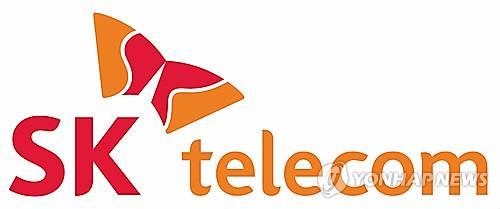Korea’s antitrust watchdog has been deliberating top mobile carrier SK Telecom’s takeover of the country’s No. 1 cable TV operator for more than four months, fueling speculation it may grant conditional approval to the controversial deal, watchers said Wednesday.
In November last year, SK Telecom signed a 1 trillion won ($880 million) deal to purchase CJ Hellovision from its parent firm CJ O Shopping, the home shopping unit of food and entertainment conglomerate CJ Group. SK Telecom plans to merge the company with its cable and Internet TV service unit SK Broadband.
The Fair Trade Commission (FTC) has been examining the deal since the leading mobile carrier filed for approval on Dec. 1. The FTC had originally planned to complete the deliberation by the end of March but has delayed its ruling, citing the need for more data collection and revision.
The merger and acquisition (M&A) deliberation period for the case, or 140 days, has already broken the previous record of 132 days that it took for the watchdog to approve CJ O Shopping’s purchase of multiple program provider On Media in 2010.
Analysts said it is unusual for the FTC’s M&A deliberation period to exceed the legal cap of 120 days.
But the watchdog said it still has enough time to evaluate the M&A deal because the deliberation period excludes days needed to revise data and obtain additional documents.
After the FTC and the Korea Communications Commission, the Ministry of Science, ICT and Future Planning plans to make a final decision on the deal, which rivals and other opponents argue will cement SK Telecom’s market dominance and thus unlevel the playing field.
As the FTC’s deliberation drags on, industry watchers predict the watchdog may grant conditional approval for the high-profile deal, given it has rarely rejected M&A applications.
The watchdog will likely give the go-ahead to SK Telecom on the condition that it should sell a specific business division of CJ Hellovision or abstain from raising subscription fees for a certain period, they said.
No. 2 mobile carrier KT Corp. and smallest player LG Uplus strongly oppose the deal, saying it could “distort the market” by enabling SK Telecom to expand its presence in the country’s communications and pay TV markets.
In March, KT and LG Uplus launched a rare, joint ad blitz to denounce the takeover, which SK Telecom dismissed as a mere ploy to scupper the deal that could inject more competition into the market.
Currently, SK Telecom dominates the local mobile market with a 50-percent market share, while KT and LG Uplus trail with some 30 percent and 20 percent, respectively. But SK Broadband, accounts for only about 10 percent of the pay TV market, lagging far behind that of its bigger rival KT.
Once the merger between SK Broadband and CJ Hellovision with 4.16 million cable TV subscribers is completed, SK Telecom would boast 7.7 million broadcasting service subscribers, which could put the company in a better position to compete with KT.
At present, KT is the leading player in the pay TV segment with 6.15 million users of Internet Protocol TV services, along with 2 million subscribers to KT Skylife, a satellite broadcasting provider. LG Uplus has around 2.2 million users of its broadcasting services.
The FTC’s delayed decision, meanwhile, has left SK Telecom on edge since next month’s opening of the 20th National Assembly, in which the opposition camp will have a majority, could complicate the situation.
In last week’s general election, the ruling Saenuri party won 122 out of 300 seats while the main opposition Minjoo Party of Korea and the People’s Party clinched 123 and 38 seats each. Other minor party members and independents garnered the remainder. (Yonhap)


